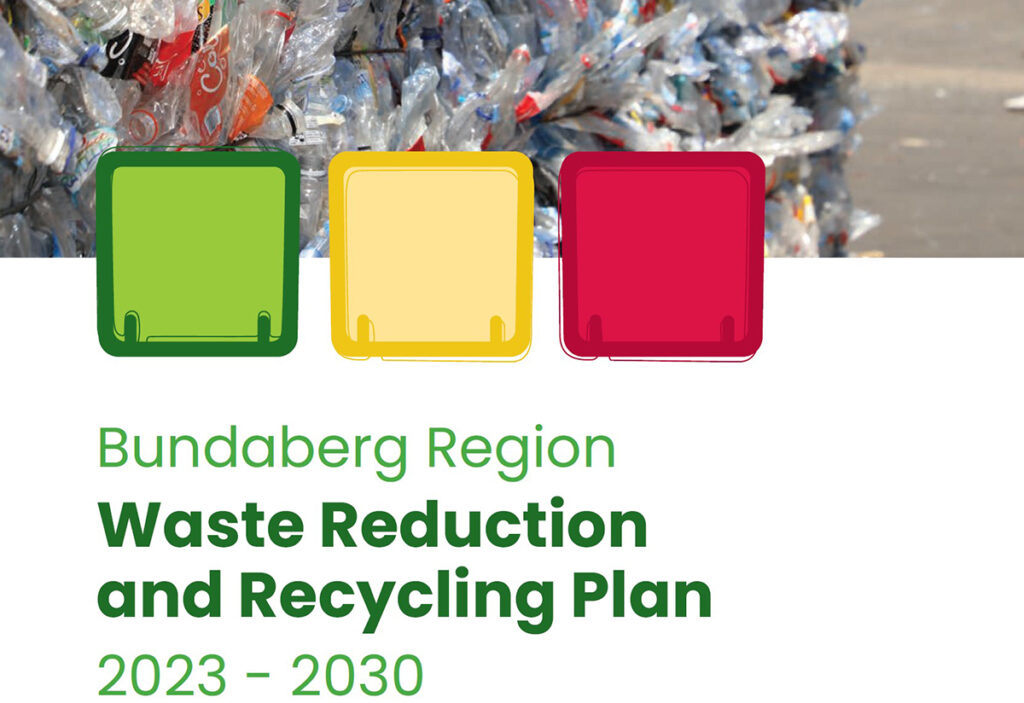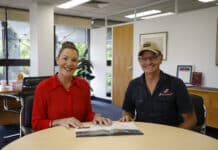
The region’s first step on its journey towards zero waste was taken in the adoption of the Waste Reduction and Recycling Plan with a recent survey showing community support.
The strategy sets out a pathway for the region to cut the amount of waste to landfill and aligns with Council’s Towards Net Zero strategy.
It incorporates actions for short and medium-term implementation to align with the 2030 aspirational waste reduction and recycling targets set by the Queensland Government of:
- reducing the amount of waste generated by residents by 15%
- increasing the amount of materials recycled to 60%
- increasing the amount of municipal solid waste diverted from landfill to 70%
Waste and Recycling portfolio spokesperson Cr Tanya McLoughlin said a survey conducted in conjunction with the development of the strategy revealed a high level of community support for recycling and resource recovery.
“It was wonderful to see a majority of respondents support Council initiatives to cut waste to landfill including 63.1% in support of the introduction of a Food Organic and Garden Organic (FOGO) service and 79.7% flagging support to recycle more,” Cr McLoughlin said.
“Even more encouraging was the fact that 98.4% of respondents said they were already actively recycling through Council’s household bin collection service.
“It’s essential we have this community support to achieve the outcomes of the Waste Reduction and Recycling Plan.
“Aside from the environmental benefits of improving our waste reduction and recycling habits the cost to do nothing will only get higher through the State Government waste levy and the rising costs of maintaining landfills.”
Waste reduction and recycling themes
Currently, each Bundaberg Region household generates 725 kilograms of waste that is landfilled annually through the residual waste bins.
The region’s overall recycling rate from the yellow lidded recycling bins is only 15% of the materials collected.
The Waste Reduction and Recycling Plan contains five themes which outline how Council will support the community and work collaboratively to cut waste and create a circular economy:
- Waste Avoidance and Education: encourages waste avoidance reduction and re-use while promoting behavioural change through communication and education.
- Capturing Organics Plans for the Future: with introducing a trial for Food Organics Garden Organics (FOGO) collection while creating opportunities for re-useable secondary high value products.
- Use the Right Bin: uses educational and legislative levers to ensure residents and businesses use the right bin ensuring suitable materials are placed in each bin.
- Recovery of Resources: involves the collegial fostering of relationships with other Councils, industry, and the State and Federal governments to establish and embed circular economy principles.
- Sustainable Waste Services and Infrastructure: ensures waste, recycling and recovery services are provided to the community as cost effective, safe and easy to use as possible while reducing waste to landfill.
FOGO trial a positive start
Bundaberg Regional Council has already begun investigating the viability of a household FOGO service through a trial which will provide critical information for Council in its consideration of rolling out a region-wide FOGO program.
Cr McLoughlin said trial participants were not being charged additional waste collection fees during the trial process.
“Council has budgeted for the cost of the trial to ensure we thoroughly consider the best options for our community in cutting waste to landfill and increasing resource recovery.
“Recently we’ve been very fortunate to receive a funding boost from the Queensland Government to subsidise the cost of the trial to Council.
“This is a huge benefit as we continue to work towards the goals set out in our Waste Reduction and Recycling Plan.”
Bundaberg Regional Council’s household organics collection service trial received funding from the Queensland Government’s Recycling and Jobs Fund.
The Waste Reduction and Recycling Plan can be found here.







